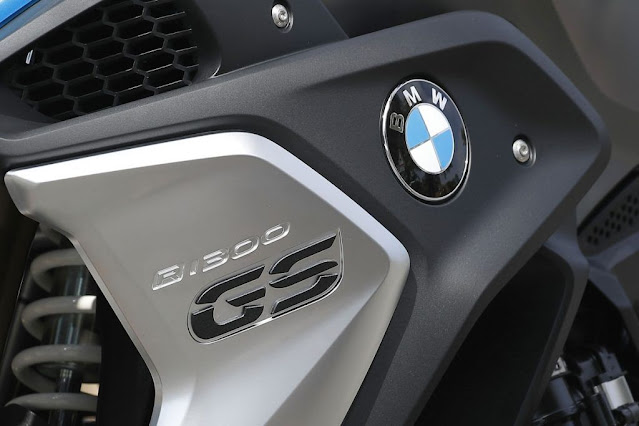Automatic Braking and Variable Stiffness Frame: The First Innovations of the BMW R 1300 GS
The BMW R 1300 GS, the most anticipated motorcycle of 2024, is set to introduce some exciting new features: variable stiffness suspension springs and an automatic braking system. BMW recently unveiled these technological advancements, providing a glimpse into the future of this iconic motorcycle.
After years of speculation and anticipation, the details surrounding the BMW R 1300 GS are finally starting to emerge. During a presentation in Monaco, BMW showcased the latest technologies that are expected to debut on the R 1300 GS and eventually be extended to other models.
One of the standout features is the "Semi Active Frame" (SAF Next), which enhances the performance of BMW's dynamic ESA semi-active suspension. This innovative system utilizes dedicated valves and specific motorcycle applications, improving the responsiveness of the hydraulic components. Notably, BMW has gone beyond adjusting only the damping forces and introduced a clever method to vary the stiffness of the spring. Unlike traditional preload adjustments that don't alter the spring's characteristics, BMW's system enables a true variation in stiffness, allowing for dynamic handling in sporty riding or optimal stability when fully loaded with a passenger and luggage.
Another notable feature is the automatic height adjustment system, which can lower the motorcycle by 30mm for improved manoeuvrability and stability at low speeds. With the help of a compact electric pump, the system can quickly lower or raise the bike, ensuring a comfortable riding experience, especially in urban settings or off-road situations.
BMW's commitment to innovative suspension technology extends beyond these advancements. The SAF Next system continuously adjusts hydraulic forces while altering elastic forces between two distinct states, providing a broader range of capabilities for different riding conditions, from comfort-oriented cruising to performance-oriented support. Although this system adds complexity and some additional weight (approximately 4 kg per axle), BMW has managed to maintain its functionality while delivering impressive results.
In addition to the suspension innovations, the BMW R 1300 GS also incorporates advanced radar-based assistance systems. Building upon the progress made by Ducati and Yamaha, BMW introduces Adaptive Cruise Control, Forward Collision Warning, and Blind Spot Detection systems. The Forward Collision Warning (FCW) system, in particular, employs a sophisticated algorithm that estimates the rider's attentiveness based on various signals, such as throttle, brakes, gear position, lean angle, and acceleration. If the system determines a critical situation, it progressively alerts the rider through visual cues, and haptic feedback (subtle vibrations at the handlebars), and ultimately initiates partial braking if necessary. However, the rider retains control and must take appropriate action to mitigate the situation.
BMW's radar-based systems represent a significant step toward achieving a comprehensive "environmental perception" for motorcycles, similar to the advancements seen in cars. Unlike reactive systems that respond to rider inputs, these systems aim to proactively assist riders in potential accident scenarios. By incorporating onboard sensors like radar and cameras, BMW is leading the way in motorcycle safety, addressing the ten most common accident scenarios involving motorcycles.
With these cutting-edge features and continued dedication to suspension innovation, the BMW R 1300 GS reaffirms its status as a top-tier adventure motorcycle, catering to riders who demand performance, safety, and groundbreaking technology.




Comments